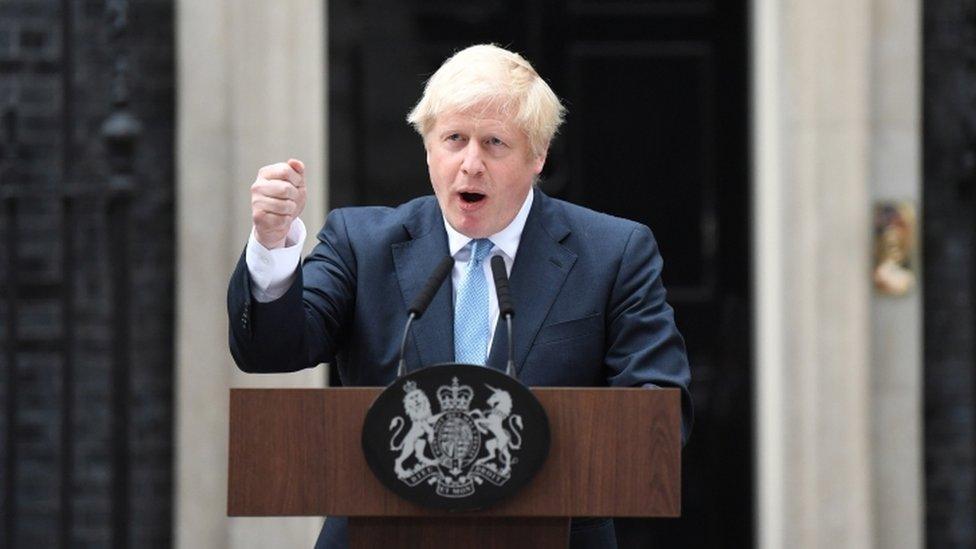Court of Session will give Brexit judgement next week
- Published
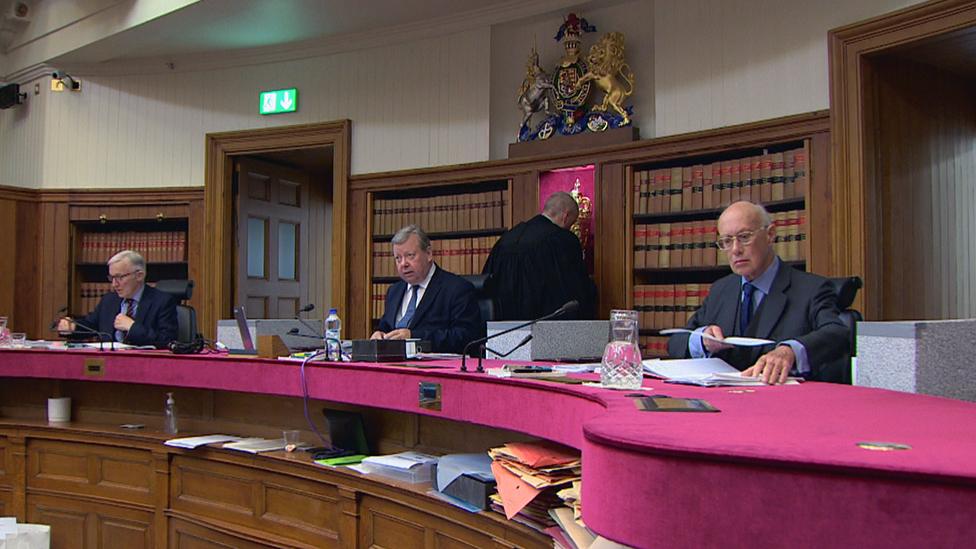
Three judges heard the appeal in the proroguing case
Scotland's highest civil court will give its judgement next week on a challenge to the planned suspension of the UK Parliament.
But judges Lord Carloway, Lord Brodie and Lord Drummond Young refused an interdict which would have immediately halted the process.
Lord Carloway said the court had to consider some extremely complex issues and a decision would take some time.
The court had heard the prorogation of Parliament could begin on Monday.
In London earlier, a legal challenge over the decision to suspend Parliament was rejected in the High Court.
The case was brought by businesswoman Gina Miller, who argued the move was "an unlawful abuse of power".
That decision is being appealed to the Supreme Court.
The judges in Edinburgh are considering an appeal against a ruling by Lord Doherty that the issue was for politicians and voters to judge, and not the courts.
Aiden O'Neill QC, representing about 70 parliamentarians led by SNP MP Joanna Cherry QC who are challenging the UK government, had asked the judges at the Court of Session in Edinburgh to "hold the ring" until next week, to prevent Parliament being suspended before their ruling.
'Attack on democracy'
Earlier, he had argued that the suspension was unlawful.
"A decision to prorogue shuts down Parliament," he said. "It is in those circumstances an attack on democracy.
"It is an attack on the balance of the constitution, and therefore is is unlawful."
But David Johnston QC, representing the UK government, said it was not for the courts to get involved in what was a political decision.
Lord Brodie asked whether what one person saw as "high politics" could be seen by another as "low tricks".
Mr Johnston said that "advice that was given for a political motive would not make it improper".
Prerogative power
The government QC has told the court that prorogation was not a matter for the legal system.
He said: "It is a prerogative power. It is not something that the courts should enter into. It is a political decision. It is simply not apt for judicial control.
"There are historical examples - in 1948, Parliament was prorogued for just one day in order to pass the 1949 Parliament Act.
"It is not a justiciable matter."
Mr Johnston also told the court that as a consequence of Parliament passing the Benn bill - which seeks to prevent a no-deal Brexit - the Privy Council order to prorogue would no longer apply.
He added: "The Order in Council would fall."
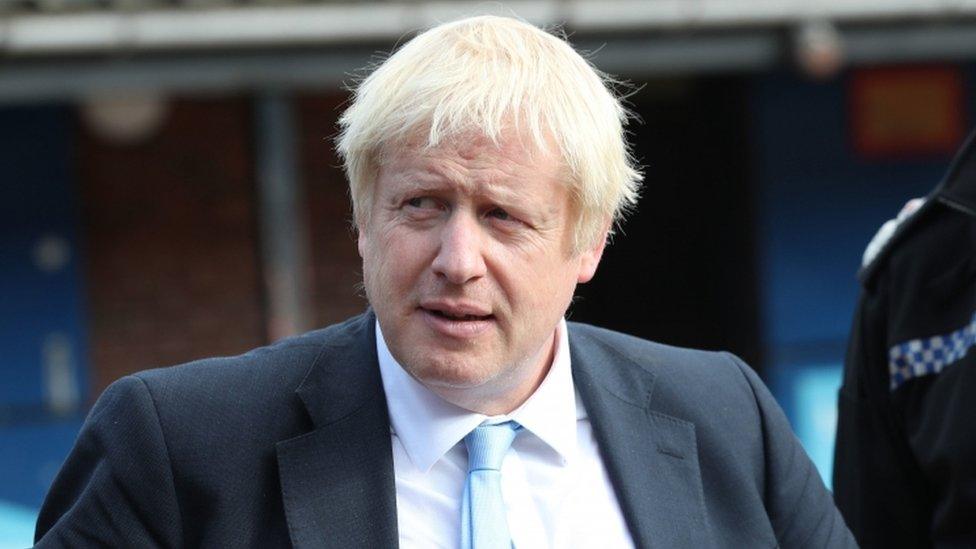
The documents released by the court included a memo sent to Prime Minister Johnson
The court on Thursday agreed to a request by the BBC, the Times and the Sun to release government documents related to the case.
They include a note sent to the PM on 15 August asking if he wanted to prorogue parliament from mid-September.
A handwritten tick and the word "yes" can be seen on the document.
Outside the court, Jolyon Maugham QC said he believed the judges could still postpone the prorogation on Wednesday.
Mr Maugham, who is one of those backing the case, said the Supreme Court was likely to be the final destination for the case.
But he thought the Scottish judgement could influence the thinking of the Supreme Court judges.
He added: "If we get a decision in our favour on Wednesday, our understanding is it will suspend the prorogation."
- Published5 September 2019
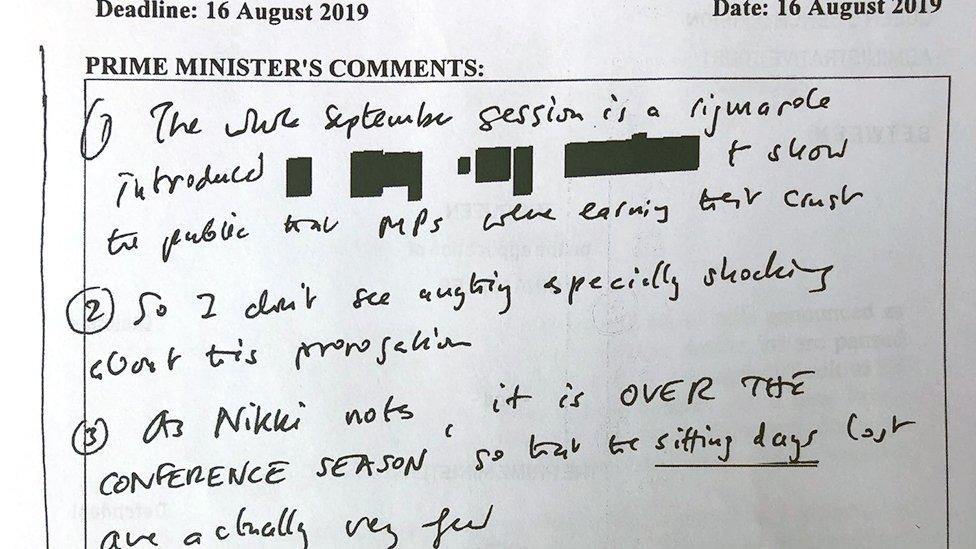
- Published4 September 2019
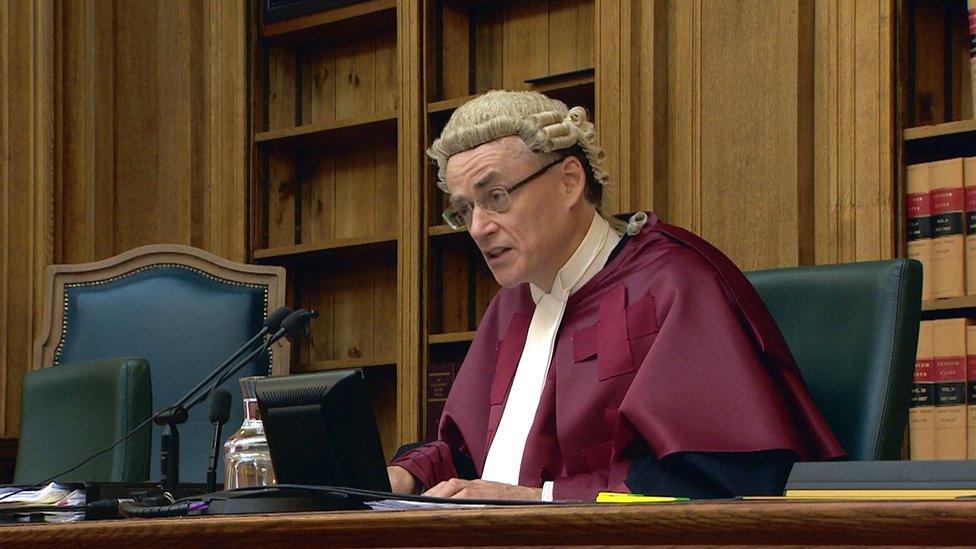
- Published3 September 2019
